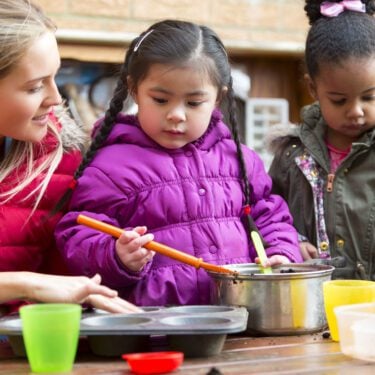
08/03/21
2 min read
As school children in England prepare to go back to the classroom today, new research provides the first evidence of the significant negative impact of school closures last summer on children’s mental health.
The Nuffield-funded study by researchers at the Universities of Essex, Surrey and Birmingham found a significant rise in emotional and behavioural difficulties among primary school children following the 2020 spring and summer term school closures, a rise that was greater for children who were not prioritised to return to school for six weeks before the summer holiday.
The study found a slight improvement in well-being once schools reopened in September, but not to pre-pandemic levels, and the gap between those who missed out on more vs. less time in school during the summer term remained stubbornly wide. This suggests that the potentially negative impacts of the current round of school closures on children’s mental health are likely to continue after the Easter holidays and into next term, if not beyond.
Using a unique data set from Understanding Society and the associated COVID-19 study collected during the pandemic, the researchers were able to track how children’s mental health had changed over the past three years. To pinpoint the impact of school closures, they compared these changes for children who were invited to return to school earlier in the summer term (those in Reception, Year 1 and Year 6) with those who were not prioritised to return before the summer holidays (those in year groups 2, 3, 4 5 and 7), controlling for age and other factors to ensure they were comparing similar pupils.
Mothers reported an increase in children’s behavioural and emotional difficulties during the pandemic. The rise was equivalent to a child newly exhibiting a particular negative behaviour or experiencing a new emotional difficulty some of the time, or around 14% of the average pre-pandemic level of difficulties, as measured using the Strengths and Difficulties Questionnaire. This increase in difficulties was greater among children who were less likely to have returned to school during the summer term.
Dr Birgitta Rabe, Reader in Economics at the Institute for Social and Economic Research at the University of Essex, leading the research said: “Taken together, our results suggest that the effects of school closures on children’s wellbeing are large, and that they may take some time to mend. Going back to school in itself does not appear to be sufficient for children to ‘bounce back’. Additional support for children’s mental health and wellbeing is likely to be required for some time and justifies the focus that many schools have been placing on pupil wellbeing.”
Dr Jo Blanden, Reader in Economics at the University of Surrey said: “There has been a lot of focus on children’s learning losses during the pandemic, with Government committing £1.7billion to help children catch up on the education they have missed. Given the strong links between children’s mental health and educational attainment, a focus on mental health will be an important strand of the educational ‘catch-up’ that is required.”
Download report






















































